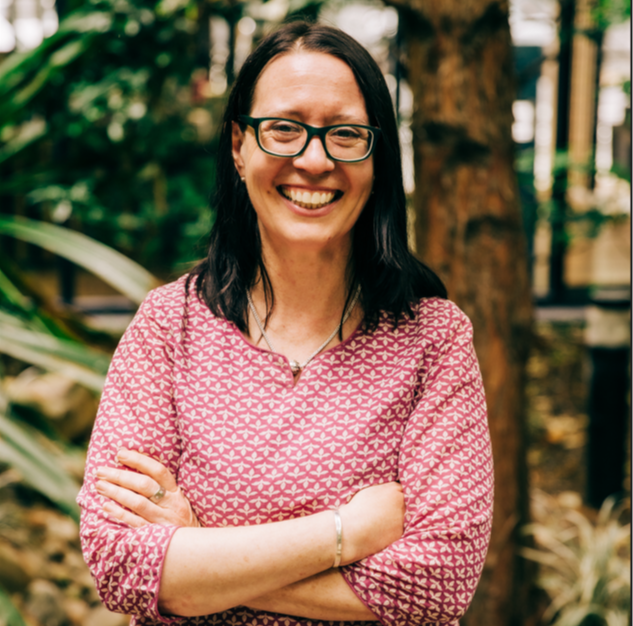Back to the F**kture: Susanne Etti
In our latest Back to the F**kture podcast, Dr Susanne Etti talks carbon labelling and more collaborative and constructive ways to tackle the climate crisis through her role and work with sustainable travel group, Intrepid.
Dr Susanne Etti and I hit it off straight away. For one, she lives in Melbourne – my favourite maritime city and skinny white provider, no challengers – and for two, she pulls no punches when it comes to reminding the travel sector just how much it has contributed to the current climate crisis.
No issues there, except that Susanne, a biologist, one of the BBC 100 Women (think Michelle Obama and global climate leader Christiana Figueres) and one of National Geographic’s Travellers of the Year, works for Intrepid, a light-foot, small group adventure travel business, and carries the title of global environmental impact manager. These things make you hyper-aware that her observations about the sector come with much thought, careful knowledge, and a scientist’s understanding that to comprehend how and why we should change things, we need to truly appreciate what will happen if we don’t. And Susanne, as you’ll discover in my latest Back to the F**kture podcast, is pretty clear about the latter.
Climate boiling instead of global warming; wildfires instead of campfires; submerged coral reefs instead of above sea-water coral islands; carbon passports instead of travel permits; trips that chase the shade rather than follow the sun; climate refugees outnumbering economic migrants; and… Well that’s just it – the ‘and’ can be even more devastating, or it can be a turning point we can all contribute to, she tells me, especially if we begin to measure our carbon footprint as travellers, agencies, hoteliers and corporations – and proactively take steps to reduce it.
‘So for Intrepid, I’m not just looking at ways we can reduce our carbon output at our offices or among our team, but on our trips, and with our clients – and how we get them from A to B; 98% of our carbon emissions, after all, sit with any organisation’s supply chain.’
But by quantifying this and making that measure visible to clients in the form of carbon labelling in much the same way products now carry nutritional details, we can, she believes, make all parts of a brand’s eco-system aware of the cost of its decision – and how we can collectively mitigate it.
 BBC 100 Women 2023 (UK)
BBC 100 Women 2023 (UK)
And here, I think, she has hit on a crucial thing. Just as brands are expected to do the right thing, so too, she says, we should expect customers to do the right thing by understanding their own carbon profile – carbon-tracker and carbon stakeholders instead of calorie-tracker, anybody? And we should proactively manage them personally, and engage with brands doing the same, so that overall carbon footprints can be measured and management advice offered accordingly. ‘It’s about the radical collaboration of sharing information and learning from each other because then we can really work to implement more sustainable travel practices.’
With that in mind, Intrepid has managed to publish detailed carbon labelling for over 500 trips between 2022 and 2023, but as Etti says, it is a laborious process where, to be accurate, you have to consider every tiny detail of the tour – from how you travel and what and how you cook when you get there, to the carbon labour costs of delivering on those many experiences and encounters that make up any travel adventure.
But as Intrepid’s recent report, A Sustainable Future for Travel, flags up, once you begin to measure and mitigate these things, the future isn’t just brighter, it’s different, as we consider the rebooting and rise of less damaging modes of travel (the return of high- speed sleepers, low-orbital Arctic airships, electric jets, hydrogen-fuelled ships), or even more inclusive ways of defining travel as we consider the why as well as the how.
Hence, choosing a destination because of its people rather than its hotels, seeking out ephemeral ‘no-impact’ escapes where off-grid concepts like CABN embrace a ‘no-trace’ mindset, or the growth of regenerative destinations such as Albania and Costa Rica, where resources are managed in tandem with tourist numbers, and their expectations and requirements.
But this, as Etti says in the report, which was created in association with The Future Laboratory’s Foresight team, can’t be a brand-only initiative. ‘We must recognise that the future will be different from business as usual, and that the climate crisis is not a competitive advantage. We must align, collaborate and accelerate collective action and innovation to decarbonise travel, as only then can our industry truly achieve its huge potential sustainable development.’
You can listen to the full interview with Dr Susanne Etti here, or download a copy of Intrepid’s A Sustainable Future for Travel from here.

